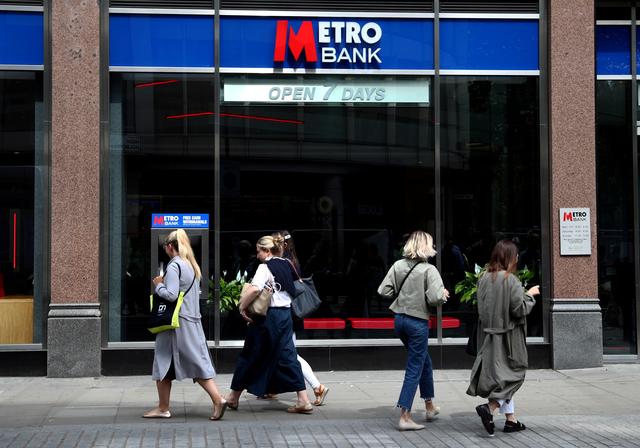
Several banks, including TSB, Metro Bank, and Co-operative Bank, have written to the governor of the Bank of England requesting that rules be made ‘fairer’ to “’unlock between £24bn to £28 bn in additional lending capacity over the next five years”.
They argue in the letter sent by mail on Sunday that relaxing the stringent rules on smaller banks would help reduce the huge disadvantage small bank experience compared to their biggest high street rivals.

Access deeper industry intelligence
Experience unmatched clarity with a single platform that combines unique data, AI, and human expertise.
The rules, as they stand, “harm competition and the ability to deliver for customers and businesses,” the banks wrote.
Regulation requires banks to have a bigger capital safety net once they reach a certain size, in case they collapse, to avoid a repeat of the financial crisis. It means banks have to issue special bonds with high interest, making it expensive.
This kicks in once banks have made £15bn of loans or have more than 40,000 current accounts.
The “big six” high street banks continue to dominate the mortgage market
Smaller banks have long-argued that rules are stacked in favour of the “big six” lenders – RBS, Lloyds, Barclays, HSBC, Santander and Nationwide. These same six have held 70% of the mortgage market since 2009, according to data from UK Finance.

US Tariffs are shifting - will you react or anticipate?
Don’t let policy changes catch you off guard. Stay proactive with real-time data and expert analysis.
By GlobalDataThe smaller banks say that so-called “ring-fencing” rules that protect consumers from banks’ investment banking businesses have made things worse by unintentionally strengthening the hands of the bigger banks in mortgage lending.
They want Britain to follow the United States and make rules more “proportionate” for smaller banks even though this potentially could mean they are higher risk.
Skin in the game vs moral hazard
The protesting banks held the hope that Brexit would trigger a fundamental look at regulation to ensure London remains a competitive global financial centre, the sources said.
The Bank of England has acknowledged mid-tier lenders could be facing “barriers to growth” as efforts so far to boost competition has not led to much change in the market dominance of the big six.
One factor militates against smaller banks’ arguments for softer rules: quite a few of them have had problems.
For example, Metro Bank lost its chairman and CEO last year over a nearly 1bn pound loan book error, while TSB had a major IT crash the year before.







